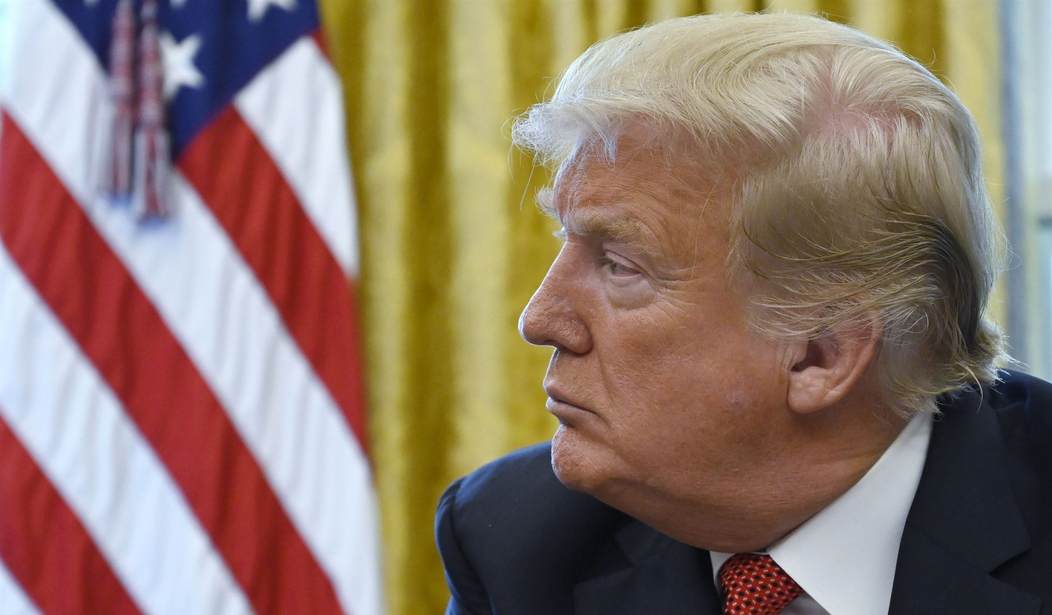I have written extensively that I would like to see President Trump release his tax returns. That being said, those who want to rely on a one hundred year old section of the Internal Revenue Code to force President Trump to release his tax returns best be very, very careful what they wish for. Demanding President Trump's tax returns sets Congress on an exceptionally slippery slope.
There are a great number of tax returns I would like to review. I would like to see Sen. Diadne Feinstein’s tax returns and the limited liability companies that fold into that tax return. Ms. Feinstein’s husband is a legendary and well respected investor; it would be fascinating to review how he walked the tightrope of investing while his spouse was a U.S. senator. I would like to review George Soros’s tax returns and every non-profit entity that receives his money. And I would like to see Nancy Pelosi's tax returns as Ms. Pelosi's net worth based upon OpenSecrets.org tripled between 2005 and 2015.
The applicable Internal Revenue Code sections do in fact allow certain House of Representative Committees to obtain, inspect, and disclose the confidential tax information of any taxpayer. Those same sections allow for the requesting committee to appoint examiners and to release such information to other committees. This may or may not be complicated by the requirement that the committees meet in "closed executive session".
Professor Yin of the University of Virginia's law school who wrote on this issue in 2017 provided that "any congressional inquiry must relate to a legitimate legislative purpose." So, therein would begin the legal wrangle as President Trump would argue at the Supreme Court that no such legislative purpose exists. Months, if not years, would be lost.
Recommended
Tax returns are interesting documents. Interesting things can be learned from tax returns. The simpler the tax return, the more we can learn. A review of Elizabeth Warren's recently released tax returns shows that a couple of Harvard professors can earn around $750,000 per year and are permitted to "moonlight" writing and speaking, sometimes earning considerably more in any given year. Her tax returns along with OpenSecrets.org show that a couple of Harvard professors can put aside millions of dollars of their earnings tax-free in university related pension plans. Tax returns can be reviewed to find that Elizabeth Warren and her husband earned over $7.7 million between 2007 and 2016 while donating less than $300,000 to charity. Their personal expenses did not include any mortgage payments as they apparently live in a home without a mortgage. Charity apparently is not high on the priority list for these one percenters. With their personal funds, there is no sign of investment of their personal funds except in bank accounts (or perhaps a mattress stuffed with money.) Images of Scrooge are hard to repress. So, tax returns can be quite revealing.
President Trump's tax returns would be fascinating. They would indicate the number, if any, of foreign bank accounts and his charitable interests outside of any corporate giving. But much of what other writers would like to know would not be visible in his tax returns and if his investments are in LLCs where tax returns are filed separately, the information flow will be severely limited. For sure, the tax returns would not disclose the names of his lenders.
The problem here is that once Congress uses Sections 6103(f)(2), (3) and (4)(B) to attack the President, all bets are off. Whatever excuse they use to obtain these initial tax returns could be used for the tax returns of anyone. And that is a very bad precedent.
While I would love to see President Trump's tax returns, the country, in the long run, would be far better served if Congress eliminated their power to obtain the tax returns of anyone.
























Join the conversation as a VIP Member